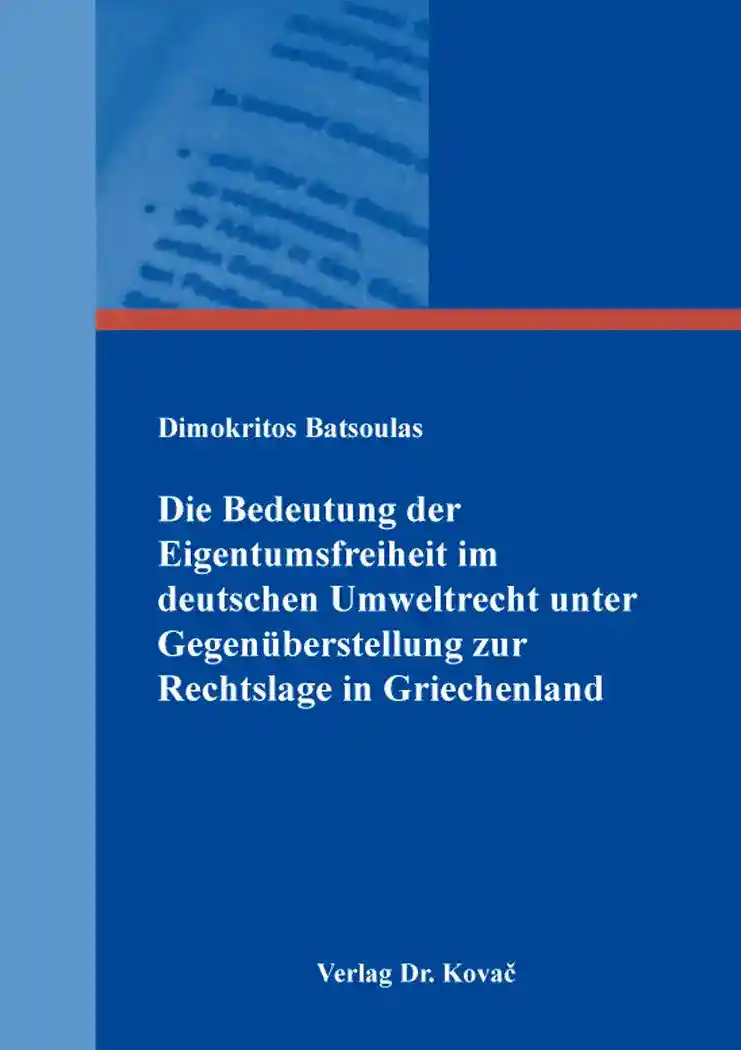Dimokritos BatsoulasDie Bedeutung der Eigentumsfreiheit im deutschen Umweltrecht unter Gegenüberstellung zur Rechtslage in Griechenland
Umweltrecht in Forschung und Praxis, volume 79
Hamburg 2023, 186 pages
ISBN 978-3-339-13446-2 (print) |ISBN 978-3-339-13447-9 (eBook)
About this book deutschenglish
Art. 14 GG represents the Fundamental Right that interacts most with the environmental protection of Art. 20a GG: Property and the environment are in a constant state of tension with each other, as they are locally interrelated. The use of property can affect the condition of environmental goods, for example by being associated with water consumption or air emissions. From a legal point of view, the line of conflict between property and environmental goods occurs primarily in the field of Environmental Law. The exercise of property freedom often conflicts with the protection of natural resources since property uses may lead to environmental impacts of varying intensity. Apart from the tension between freedom of property and environmental protection, there are also constellations in which property and environmental protection can stand side by side in the field of Environmental Law: Environmental burdens from the realisation of large-scale projects have a detrimental effect on neighboring property and the affected owner subsequently resorts to his freedom of property.
The main objective of this dissertation is to explain the significance of freedom of property for German Environmental Law. To this end, it follows the prevailing division of Fundamental Rights into different dimensions in German Fundamental Rights dogmatics. The Fundamental Rights dimensions of defensive rights, duties to protect, and procedural and organisational Rights are applied to freedom of property in the context of the work and are analyzed in terms of their significance in the environmental sphere. The preferred method of working through the various dimensions of Article 14 GG in an ecological context means that the work also contains Fundamental Rights dogmatic references in addition to its clear orientation towards Environmental Law. The analysis is predominantly oriented towards the considerations of case law, which may offer general dogmatic standards for dealing with the topic.
The findings on the various dimensions of Article 14 GG in German Environmental Law are compared with the legal situation in Greece in the final section of the dissertation. This is not a binary comparison between two countries, but a comparison in which the findings on Germany are mirrored in the Greek legal system.
Keywords
AbwehrrechteEigentumsfreiheitGriechenlandGrundrechteGrundrechtsdimensionenÖffentliches RechtPrivatpersonenSchutzpflichtenStaatUmweltbelastungenUmweltrechtUmweltschutzVerfahrensrechteIhr Werk im Verlag Dr. Kovač

Möchten Sie Ihre wissenschaftliche Arbeit publizieren? Erfahren Sie mehr über unsere günstigen Konditionen und unseren Service für Autorinnen und Autoren.
